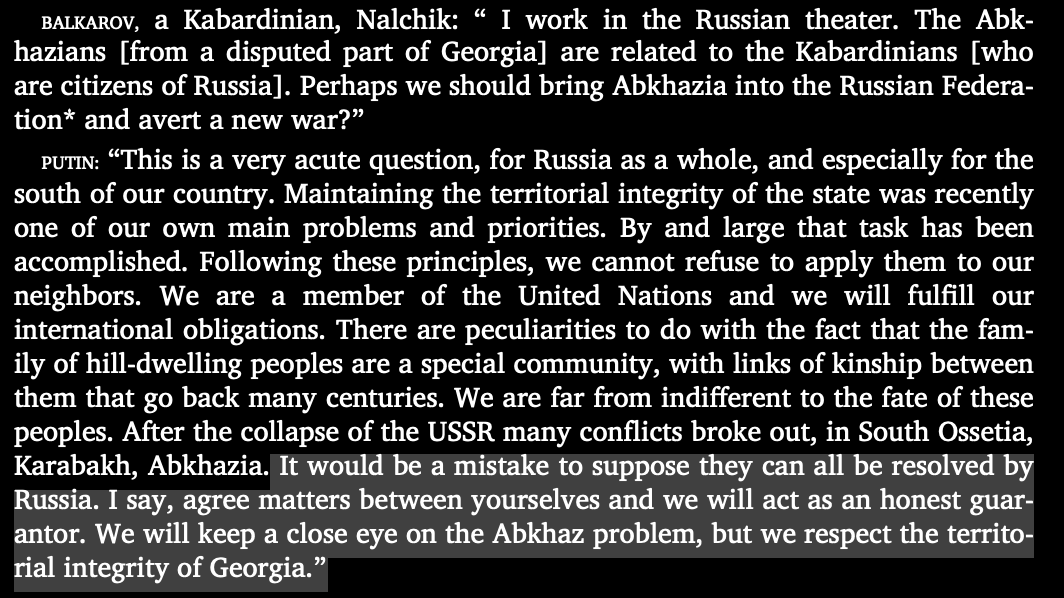Cold War II Grand Strategy
Dmitri Alperovitch on how to compete with China
A Grand Strategy for Cold War II ChinaTalk
- Politics
Is Cold War II upon us? What should America do to prevent it from becoming a hot war?
To discuss, ChinaTalk interviewed Dmitri Alperovitch. Dmitri emigrated from Russia in 1994 at age 13. He co-founded the leading cybersecurity startup Crowdstrike, and has spent the past four years running his new think tank, the Silverado Policy Accelerator.
He's also the author of the new book World on the Brink: How America Can Beat China in the Race for the Twenty-First Century.
We discuss:
Lessons from Cold War crises that almost went nuclear;
Underappreciated parallels between the Soviet Union and China today;
Groupthink in Washington as well as in Silicon Valley;
What a productive economic relationship with China would look like given national security concerns;
Some bold military and diplomatic recommendations for Taiwan;
… and more!
Work with Matt at Open Philanthropy: Clickable link, URL: https://jobs.ashbyhq.com/openphilanthropy/f33460e1-e092-46ae-918a-85338ffad9a3
Kennedy's speech to the American people regarding the Berlin Wall: JFK Library.
Outtro music: Leningradskie mosty from 1957 USSR
Learn more about your ad choices. Visit megaphone.fm/adchoices
============
https://open.spotify.com/episode/2Kr2ecQ4eUiNQfntLJdW4m?utm_source=substack&utm_medium=email
=========
From Salami-Slicing to Full Invasion 蚕食鲸吞
Jordan Schneider: I want to start with the question that every normie friend of mine asks me — is Xi is going to invade Taiwan? When I answer this question, I explain the contrast between Xi and Putin, but your book argues that they are actually quite similar.
One reason the two might be different involves Putin’s professional backstory. He was a spy who lucked his way into power, whereas Xi is a princeling born into aristocracy. He spent the majority of his career being a local politician, fixing potholes, and focusing on economic growth. He had only about one year on the national stage prior to becoming Hu Jintao’s Vice President.
Dmitri Alperovitch: By the way, it’s actually the same thing with Putin. He spent the 1990s serving as deputy mayor of St. Petersburg.
Jordan Schneider: There we go. I think the biggest difference to me, though, is less the personal backstory than what they’ve done in power.
With Putin, of course, there was blood from the very beginning, as he used the wars in Chechnya to solidify his power. He’s started or gotten himself involved in wars throughout his entire reign [Ed.: Georgia 2008, Ukraine 2014, Ukraine 2022, Syria since 2015, Libya beginning in 2017, the Central African Republic beginning in 2018].
Whereas with Xi, we don’t have that track record. We have all of these obnoxious incursions and salami slicing, but we have nothing on the scale of the invasion of Georgia, for example. My hope is that after ten years in power, the guy might have already shown us who he is. Maybe Xi just isn’t the type of guy who’s really ready to roll the iron dice, but rather takes military adventurism more seriously than Putin.
I don’t know. Dmitri. Tell me I’m wrong.
Dmitri Alperovitch: Yeah, I think you are wrong. It’s true that Putin is much more of a gambler than Xi — I agree with you on that. But I still think that Xi is a gambler.
Xi has gambled and engaged in adventurism, whether it’s the Sierra Madre in the South China Sea, or whether it’s the confrontation with India on the border.
Or we can look at zero Covid, which was the ultimate gamble — he shut down the whole country for several years in the hopes of stopping a virus that spreads through air droplets.
The crackdown on the tech industry was another incredible gamble. Not on the scale of Ukraine 2022, of course, but Putin had never gambled on that scale before either.
All the other conflicts you mentioned — whether it’s Ukraine 2014, whether it’s Syria, whether it’s Georgia or even Chechnya — were on a much, much smaller scale with much smaller stakes. But appetite grows with eating, in the case of both men. As they succeed in their gambles and don’t receive pushback, they try for more. Ultimately, that’s how you end up with Ukraine 2022.
 |
Xi clearly wants to invade Taiwan, or at least have that option. You see that from the intelligence community assessments, but you can also see it because the military buildup that he is pursuing is specifically focused on that one thing.
If you look at things like the mass construction of RORO ships (roll-on roll-off), the building of Yushen amphibious assault ships and helicopter landing decks — those are not for just random power projection or a blue-water navy. They’re focused on one thing and one thing only, which is taking the island of Taiwan. He talks a lot about how he’d like to do it peacefully. But the option of using force is not off the table.
I think he’s going to step into it cautiously, and the goal for him is to keep America out. I think that’s been his strategy since day one. His objective after coming into power is to increase his leverage over the US economically, and decrease our leverage over him economically. He’s building the military capability to inflict severe losses on American forces in the region.
Nenhum comentário:
Postar um comentário